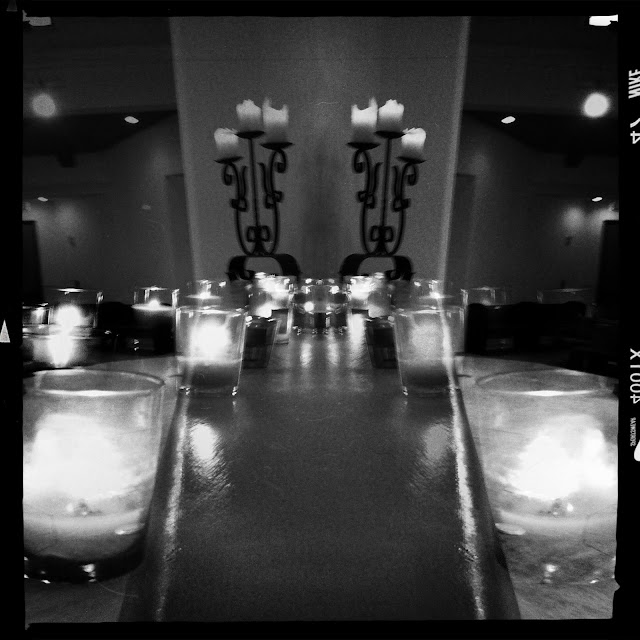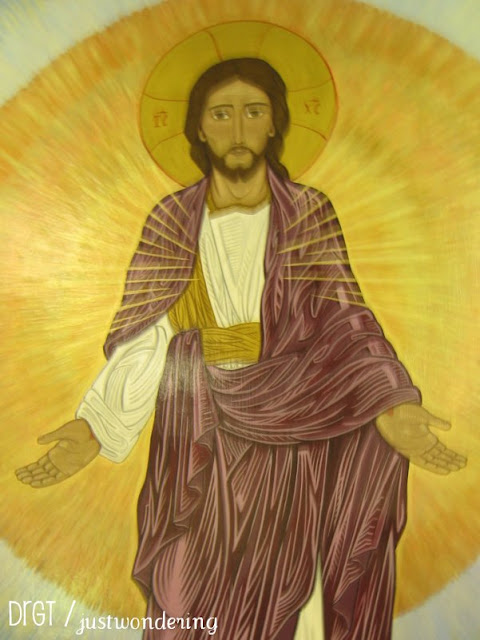more often than large and predictable.
one for which we still wait.
and buying our very first tree for 50 cents on Christmas Eve,
a tiny thing, scrawny and misshapen
but so beautiful to us;
carrying our second baby, birthing her in December, wondering if Mary felt as overwhelmed with the wonder and beauty of it all;
a tiny invasive bacteria literally eating his heel bone;
then bringing him home on Christmas Eve,
rejoicing in the goodness of God and the gift of antibiotics;
joyfully displaying an increasing supply of home-grown Advent art as our family grew up; gently saying ‘thank-you’ for each of our children as the paper became more and more tattered over the years;
learning about Lucia at our Swedish church, each of our daughters taking her turn to wear the crown of candles, ushering in the Light of the World
absorbing the wonders of the liturgical year at mid-life,
creating Advent worship experiences with a team of talented musicians/dramatists/graphic artists, each one offering their gifts in thanksgiving and praise;
preaching my very first sermon on the 2nd Sunday of Advent in 1990, and just before I began, being gently told that the husband of a dear friend had died the night before, underscoring for me the smallness of all human endeavor in the face of eternity – a great place for a preacher to be;
“O come, O come, Emmanuel…”
































